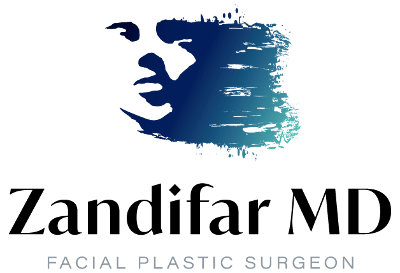Facial plastic surgery can be transformative. It offers aesthetic, reconstructive, and emotional renewal—but in communities with unique communication needs, such as the Deaf community, the surgical journey presents a different set of challenges. At ZandifarMD.com, Dr. Hootan Zandifar, a double board-certified facial plastic surgeon, understands that inclusion is not just an ethical consideration—it’s essential for quality care.
In this blog, we’ll explore how the world of facial plastic surgery intersects with Deaf culture, ethics in communication, and how providers can create an inclusive, respectful, and empowering environment.
Understanding Deaf Culture in the Clinical Setting
Communication Is More Than Language
Deafness is not simply a medical condition—it’s a cultural identity. Many individuals in the Deaf community use American Sign Language (ASL) as their primary language and value visual, non-verbal expression. Facial movement, eye contact, and gestures play a central role in communication.
This presents both unique opportunities and complications in facial plastic surgery. Procedures that affect facial muscles—such as rhinoplasty, eyelid surgery, or facial nerve repair—can temporarily or permanently change expressions. For Deaf patients, this impacts not just appearance, but how they communicate.
Cultural Awareness Shapes Medical Ethics
Informed consent means more than a signature on a form. In Deaf culture, full understanding often requires in-person ASL interpreters, slow-paced explanations, and patience with questions. Without culturally competent communication, a Deaf patient may agree to a procedure without fully grasping the risks, alternatives, or postoperative expectations.
At ZandifarMD, we believe that ethical care begins with awareness. Dr. Zandifar emphasizes time, transparency, and trust in every consultation, especially for patients from underserved or overlooked communities.
Ethical Concerns in Surgical Planning
Facial Expression and Identity
Facial expressions are essential for ASL. Raising eyebrows, widening the eyes, or puckering the lips can change the meaning of an entire sentence. For Deaf individuals, even minor surgical alterations can compromise their ability to communicate fluently.
For example, forehead lifts, Botox injections, or blepharoplasty might reduce eyebrow mobility or eye-opening range—affecting how a patient signs questions or emphasis.
Ethically, surgeons must weigh aesthetic goals against communicative impact. Dr. Zandifar conducts detailed preoperative assessments with Deaf patients to ensure their unique concerns are heard and respected.
Cosmetic vs. Reconstructive Goals
Some Deaf patients pursue facial plastic surgery for reconstructive reasons—such as addressing facial nerve paralysis from trauma or illness. Others may seek aesthetic refinement. In either case, the line between enhancing appearance and preserving communication must be navigated carefully.
This calls for a collaborative approach. By integrating the patient’s goals with an understanding of how their face “speaks” in ASL, surgeons can create outcomes that are both beautiful and functional.
The Role of Interpreters and Communication Access
Qualified ASL Interpreters Are Essential
Family members should never be used as interpreters in medical settings. A qualified ASL interpreter ensures the patient’s privacy, autonomy, and full comprehension of medical terminology.
At ZandifarMD, we coordinate professional ASL interpretation for all stages of care—consultation, surgery planning, recovery instructions, and follow-up visits. Every patient deserves to feel understood, not just medically assessed.
Visual Aids and Written Materials
Beyond interpretation, visual tools can enhance understanding. Diagrams, animated videos, and written explanations tailored to ASL users can bridge communication gaps.
Dr. Zandifar incorporates visual materials into the consultation process, ensuring patients are fully informed and able to make confident decisions about their care.
Building Trust Through Cultural Sensitivity
Listening Without Assumptions
Deaf patients often face stereotypes in medical spaces—such as the assumption they’re less interested in cosmetic procedures or incapable of understanding complex surgical information.
These biases harm trust. Dr. Zandifar approaches each patient with curiosity, not judgment. Every person deserves dignity, clarity, and the opportunity to make informed choices about their appearance and health.
Time and Patience Are Clinical Tools
Ethical care requires time—especially when working across languages and cultural frameworks. Rushed appointments often lead to confusion, miscommunication, or regret.
At ZandifarMD, appointments with Deaf patients are scheduled with additional time built in. That space allows for meaningful connection, thorough education, and a smoother experience from beginning to end.
Real-Life Considerations in Postoperative Care
Monitoring Healing Through Visual Communication
After facial surgery, patients must monitor swelling, bruising, muscle control, and scar formation. For Deaf patients, this process can be more complex—particularly if facial expressions are affected.
Dr. Zandifar encourages photo journaling and video updates during recovery. This allows both the patient and the medical team to track healing visually and address concerns quickly, even between appointments.
Adapting Follow-Up Instructions
Standard postoperative instructions—often delivered verbally or in written English—must be adapted for Deaf patients. Providing video instructions in ASL, using captioned materials, and confirming comprehension with interpreter support is critical.
Dr. Zandifar’s team personalizes post-op care plans for every Deaf patient, ensuring no detail is lost in translation.
Conclusion: Ethical Surgery Begins With Inclusive Communication
Facial plastic surgery should be a safe, empowering experience—regardless of the patient’s hearing status. For the Deaf community, ethical care requires more than surgical expertise. It requires cultural sensitivity, inclusive communication strategies, and respect for facial expression as a core part of identity.
At ZandifarMD.com, Dr. Hootan Zandifar goes beyond the standard of care. With a commitment to accessibility, ethics, and personalized treatment, he ensures that Deaf patients receive not only exceptional outcomes—but a voice in every decision.
If you or a loved one in the Deaf community is considering facial plastic surgery, you deserve a provider who listens. Contact Dr. Zandifar’s office today to schedule an inclusive, interpreter-supported consultation—and experience a level of care that honors both your beauty and your language.

